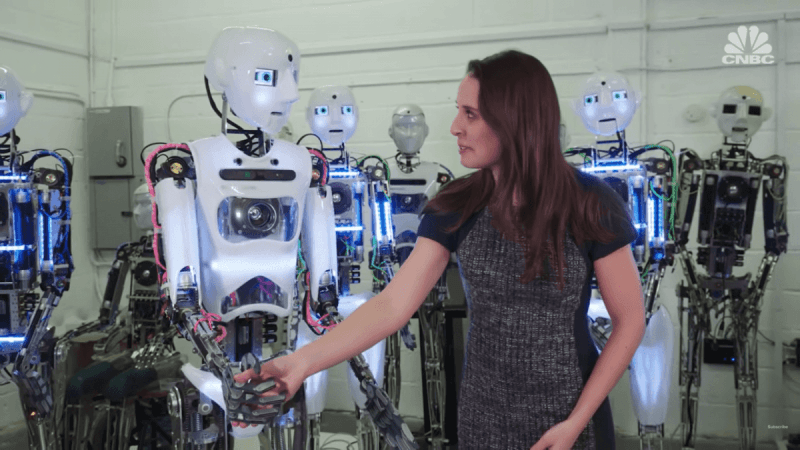Japanese researchers recently released a report in Applied Physics Letters demonstrating how developments in physical reservoir computing might educate robots to think like humans.
The University of Tokyo (Todai) researchers describe how a robot may be trained to navigate a maze by electrically activating a colony of brain nerve cells attached to the machine. These nerve cells, or neurons, were produced from live cells and served as a physical reservoir for the computer's coherent signal synthesis.

The study
An electric impulse disrupted the neurons in the cell culture whenever the robot deviated off course. The robot was given homeostatic indicators interrupted by disturbance signals until it accomplished the labyrinth problem. Providing disturbance signals to an embodied system appears to produce goal-directed behaviour without extra learning. Because the robot couldn't see or sense anything, it relied solely on electrical trial-and-error impulses.
The researchers show that physical reservoir computers can harvest chaotic neural inputs and transmit homeostatic or disturbance signals to develop intelligent task-solving skills. So the computer generates a reservoir that knows how to tackle the problem.
We propose that intelligence in biological systems originates from mechanisms deriving coherent output from disordered or chaotic states, says co-author Hirokazu Takahashi, associate professor of mechano-informatics at Kyoto University.
The team believes that applying physical reservoir computing in this situation will aid in our knowledge of the brain's processes and may even result in the construction of a unique neuromorphic computer.

Will robots eventually overtake humans?
With greater research in AI and robotics, robots potential of outperforming humans have developed. Robots are said to be more trustworthy than humans since they do not get tired of working.
Their great precision and 24/7 availability make them highly reliable. Robotics and AI have helped numerous sectors expand and flourish.
"The potential advantages of AI are enormous, as are the dangers," said Dave Walters. Robots are progressively replacing humans as drivers, packers, deliverers, and pilots.
Unemployment causes people to get restless and use their power in the wrong situation such as crime, theft, etc., which is a big societal issue. While robots are replacing people in some occupations, not everything is lost. Despite the loss of over a million jobs, automation and robots have created new jobs such as IT advisors, robotic technicians, AI developers, data investigators, robot makers and maintainers.
And unlike humans, robots lack creative and decision-making ability as well as empathy. Hr professionals and other positions that need a mix of these talents will never be automated.









